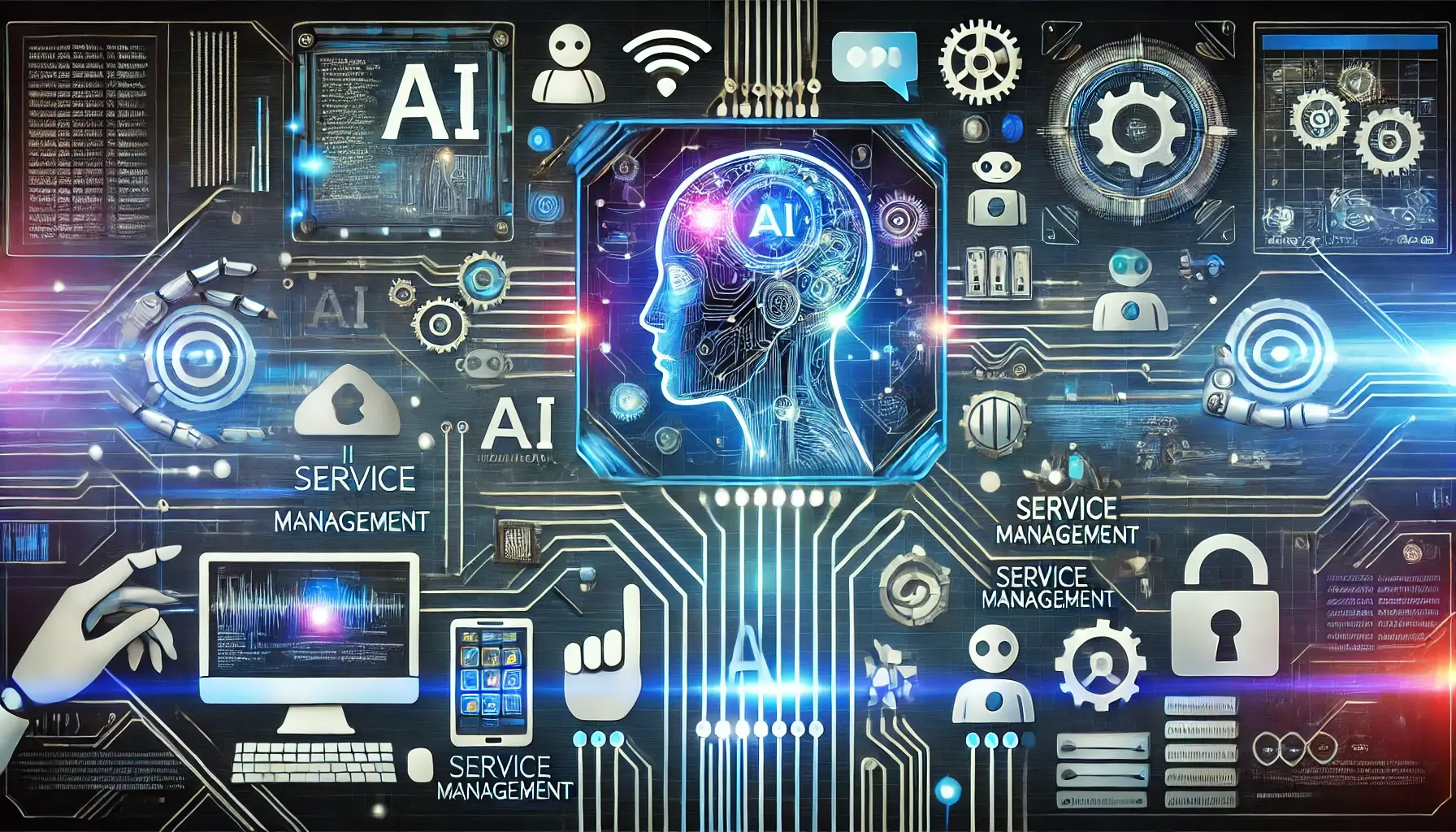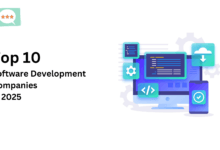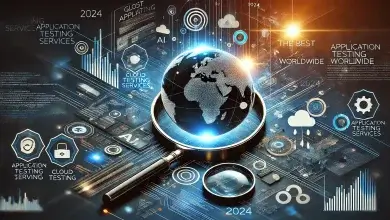Best Artificial Intelligence Applications in IT Service Management (ITSM)

Artificial Intelligence (AI) is revolutionizing IT Service Management (ITSM) by automating routine tasks, improving decision-making, and enhancing service delivery. AI-powered solutions in ITSM provide real-time insights, optimize resource utilization, and enable faster incident resolution, ultimately driving operational efficiency and improved customer satisfaction. In this blog, we’ll explore some of the best AI applications in ITSM, highlight their capabilities, and evaluate leading service providers along with their strengths and weaknesses.
Key AI Applications in ITSM
- Automated Ticketing and Incident Management AI-powered ticketing systems automate the classification, prioritization, and routing of incidents based on predefined parameters. By analyzing historical data, AI tools can predict the severity of incidents and recommend solutions. This reduces manual intervention, speeds up resolution times, and minimizes human errors.
- Virtual Agents and Chatbots Virtual agents and chatbots handle common IT service requests and inquiries by providing instant responses and escalating complex issues to human agents when needed. These AI tools can operate 24/7, improving employee productivity and user satisfaction by providing quick and accurate resolutions to routine issues.
- Predictive Analytics and Problem Management AI helps identify patterns and predict potential system failures or security breaches before they occur. By leveraging machine learning algorithms, ITSM systems can analyze historical data and provide proactive solutions to recurring problems, minimizing downtime and disruptions in service.
- Service Desk Automation AI-powered service desks use natural language processing (NLP) to understand user queries and provide relevant solutions. They can auto-resolve routine requests such as password resets, software installations, and system access management, freeing up IT personnel for more complex tasks.
- IT Asset Management AI optimizes IT asset management by tracking hardware and software inventories, predicting maintenance needs, and forecasting future asset requirements. AI algorithms can provide insights into asset lifecycles, helping IT teams optimize costs and enhance decision-making for procurement and maintenance.
Leading Service Providers in AI for ITSM
- ServiceNow
- BMC Helix
- IBM Watson AIOps
- Microsoft Dynamics 365 for ITSM
- Freshworks
- Cherwell
- SysAid
- HCL Technologies
- Cognizant
ServiceNow
Strengths: ServiceNow is a leader in ITSM with its AI-powered IT Operations Management (ITOM) and Virtual Agent solutions. Its platform integrates seamlessly with existing IT infrastructures, offering AI-driven insights, automated workflows, and predictive analytics. ServiceNow’s AI capabilities help reduce resolution times, optimize resource allocation, and enhance user experiences.
Weaknesses: ServiceNow’s extensive functionality may be overwhelming for smaller organizations, and the pricing can be high for businesses with limited budgets. Customization can also be complex, requiring specialized expertise for implementation.
BMC Helix
Strengths: BMC Helix leverages AI and machine learning to deliver predictive service management, cognitive automation, and intelligent incident resolution. Its AI-powered chatbots enhance user engagement, while predictive analytics minimize disruptions by identifying and resolving issues before they escalate. The platform also supports multi-cloud environments, providing flexibility and scalability.
Weaknesses: BMC Helix can have a steep learning curve for users unfamiliar with its ecosystem, and while its AI features are powerful, they may require significant tuning to meet specific business needs.
IBM Watson AIOps
Strengths: IBM Watson AIOps focuses on using AI for IT operations (AIOps) by providing real-time incident detection, root cause analysis, and automated response. Its deep integration with existing IT environments allows organizations to gain insights from large datasets and minimize downtime. Watson’s natural language understanding and machine learning capabilities improve service delivery and decision-making.
Weaknesses: IBM Watson AIOps may be more suitable for large enterprises due to its complexity and the resources required for implementation. Smaller organizations may find the platform to be overkill for their ITSM needs.
Microsoft Dynamics 365 for ITSM
Strengths: Microsoft Dynamics 365 for ITSM offers AI-driven virtual agents, predictive analytics, and service automation features. The platform integrates well with other Microsoft products like Azure and Office 365, providing a seamless experience for organizations already within the Microsoft ecosystem. It also offers customizable workflows and real-time analytics.
Weaknesses: While Dynamics 365 offers strong AI features, some users have noted that it lacks the depth of specialized ITSM platforms like ServiceNow or BMC Helix. Additionally, integration with non-Microsoft tools can be challenging, limiting its flexibility for organizations using diverse IT systems.
Freshservice (by Freshworks)
Strengths: Freshservice provides AI-driven automation, virtual agents, and predictive analytics in a user-friendly interface. Its affordable pricing and ease of use make it an attractive option for small to medium-sized businesses. Freshservice’s AI-powered features help streamline ticketing, incident management, and change management processes.
Weaknesses: Freshservice may not offer the advanced AI capabilities that larger enterprises require, and its feature set can feel limited compared to more robust ITSM platforms like ServiceNow. Some users have also reported slower response times for more complex queries.
Cherwell
Strengths: Cherwell offers AI-driven ITSM capabilities, including workflow automation, virtual agents, and predictive analytics. Its low-code platform makes it easy to customize workflows, and its AI tools help reduce manual tasks and improve service desk efficiency. Cherwell is also known for its flexibility and scalability.
Weaknesses: Cherwell’s AI features, while useful, may not be as mature or sophisticated as those offered by competitors like ServiceNow or IBM Watson AIOps. Users may find the platform less intuitive, and customization can require significant effort and expertise.
SysAid
Strengths: SysAid focuses on AI-powered service desk automation and incident management. Its AI features include automated ticketing, virtual agents, and predictive analytics. SysAid is particularly well-suited for mid-sized organizations, offering a balance of affordability and functionality.
Weaknesses: SysAid’s AI capabilities are relatively basic compared to more advanced ITSM platforms. For organizations looking for more complex AI-driven solutions, SysAid may fall short in delivering advanced automation and predictive features.
HCL Technologies
Strengths: HCL Technologies offers its DRYiCE platform, which focuses on using AI to automate IT operations and service management. The platform leverages cognitive automation, virtual assistants, and machine learning to predict incidents and proactively manage IT services. DRYiCE has strong capabilities in AIOps and ITOM, providing intelligent workflows and personalized user experiences.
Weaknesses: While DRYiCE is a powerful solution, it can be over-engineered for smaller businesses. The platform may also require significant investment in terms of both cost and expertise to fully leverage its AI capabilities.
Cognizant
Strengths: Cognizant’s AI-powered ITSM solutions offer automation for service desk management, incident response, and problem-solving through its Intelligent Automation platform. The company emphasizes AI to drive predictive analytics, reducing downtime and operational costs. Cognizant’s wide array of IT service offerings also makes it a versatile option for both small and large enterprises.
Weaknesses: Some users report that Cognizant’s AI offerings lack the deep integration capabilities seen in platforms like ServiceNow or IBM Watson. Additionally, customization and scaling these solutions can be a challenge without significant technical support.
Conclusion
AI applications in ITSM are transforming how organizations manage their IT services, enabling them to automate repetitive tasks, predict potential issues, and provide faster, more accurate resolutions. Each service provider offers unique AI capabilities, from ServiceNow’s industry-leading automation and BMC Helix’s cognitive service management to IBM Watson’s real-time AIOps and Microsoft Dynamics 365’s seamless integration with the Microsoft ecosystem.
When selecting an AI-powered ITSM solution, businesses should consider factors such as ease of use, scalability, integration capabilities, and the specific AI features they require. Ultimately, investing in the right AI solution can improve IT service delivery, enhance operational efficiency, and drive business growth.



